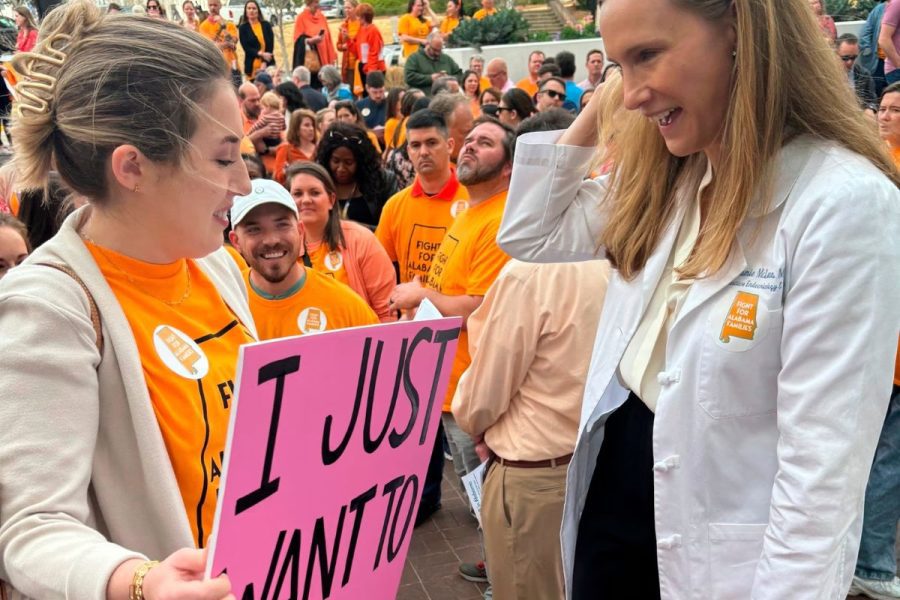Alabama Governor Signs Landmark IVF: Alabama Governor’s recent approval of the IVF Protection Bill has sparked significant conversation and debate surrounding reproductive rights and medical ethics in the state.
The new law, aimed at safeguarding individuals utilizing in-vitro fertilization services, carries implications that extend beyond its immediate impact.
As stakeholders on both sides of the issue weigh in on the bill’s potential consequences, the intricacies of its provisions and their broader societal implications are coming into sharp focus.
This development opens up a multifaceted dialogue that intersection of law, medicine, and personal autonomy in the world of assisted reproductive technology.
Legislative Action on In-Vitro Fertilization in Alabama
The Legislative Action on In-Vitro Fertilization in Alabama represents a crucial step towards addressing legal challenges faced by fertility treatment providers in the state. Alabama’s state legislature’s passing of a bill to reinstate access to in-vitro fertilization (IVF) came in response to the state Supreme Court’s decision that classified embryos as children, creating uncertainty for providers.
This landmark bill aimed to provide clarity and legal protection for IVF services in Alabama, ensuring that individuals seeking fertility treatments would not face unnecessary hurdles. By proactively addressing the legal concerns surrounding IVF, the legislature signaled its commitment to upholding reproductive rights and supporting families struggling with infertility issues.
The reinstatement of IVF services through legislative action not only safeguards the rights of providers but also offers hope to countless individuals and couples seeking to build their families through assisted reproductive technologies. Alabama’s decisive move underscores the importance of clear and supportive legal frameworks in the fertility treatments.

ALSO READ: Jerry Carl Concedes 1st District Seat: Alabama’s Political Twist
Supreme Court Decision Causes Halting of IVF Services
Following the Alabama Supreme Court’s ruling that embryos are considered children, the halting of IVF services by three major providers in the state has created significant challenges for families undergoing fertility treatments. This abrupt cessation has left many individuals and couples grappling with uncertainty and despair as they navigate the complexities of assisted reproductive technology.
The repercussions of this decision have rippled through the community, sparking debates and concerns about reproductive rights and legal implications. Here are five key points to consider:
- Families are left in limbo, unsure of the fate of their embryos and future treatment options.
- Legal experts are weighing in on the potential impact of this ruling on fertility clinics nationwide.
- The emotional toll on prospective parents facing interrupted fertility treatments is profound.
- Discussions around the definition of personhood and its implications for reproductive healthcare are intensifying.
- The need for clarity in legislation to protect both patients and providers in the assisted reproductive services is more pressing than ever.
Legislative Response and Immunity Provisions
Legislators have enacted a bill that introduces crucial civil and criminal immunity provisions for individuals and facilities involved in IVF procedures in response to the recent challenges faced by fertility clinics in Alabama.
This legislation aims to provide protection to doctors, patients, and manufacturers, shielding them from potential legal repercussions during IVF treatments.
The immunity provisions are designed to enable the seamless continuation of IVF services that were previously halted due to legal uncertainties.
Immediate Impact, Ongoing Concerns, and Future Discussions
Upon the swift implementation of the IVF Protection Bill in Alabama, immediate impacts on clinic operations and ongoing concerns within the fertility community are emerging, prompting discussions on future safeguards and solutions.
- Clinic Resumption: Alabama Fertility Specialists and other IVF clinics are gearing up to resume treatments following the enactment of the bill.
- Malpractice Protection: Questions linger regarding the extent of protection offered to clinics in malpractice cases, necessitating further clarification.
- Long-Term Solutions: Stakeholders are advocating for a more comprehensive, long-term solution to ensure sustained protection for IVF services.
- Legislative Commitment: Legislators and Governor Kay Ivey have underscored their dedication to addressing concerns and enhancing protections in IVF.
- Advocacy Efforts: Patient advocates, exemplified by Corinn O’Brien, are actively engaging in the dialogue, with discussions potentially extending to constitutional amendments concerning embryo status outside the uterus.
The landscape post-bill enactment is dynamic, with a focus on immediate adjustments, persistent concerns, and the necessity for future-proof solutions in the world of IVF services in Alabama.

News in Brief
Alabama’s IVF Protection Bill, recently approved by the Governor, addresses legal challenges surrounding in-vitro fertilization (IVF). The legislation aims to reinstate access to IVF services following a state Supreme Court decision classifying embryos as children. This legislative action provides clarity and legal protection for IVF, safeguarding reproductive rights and supporting families dealing with infertility.
The bill introduces civil and criminal immunity provisions for individuals and facilities involved in IVF procedures, allowing seamless continuation of services previously halted due to legal uncertainties. While immediate impacts include clinic resumption, ongoing concerns and advocacy efforts underscore the need for sustained protection and long-term solutions in Alabama’s IVF landscape.

